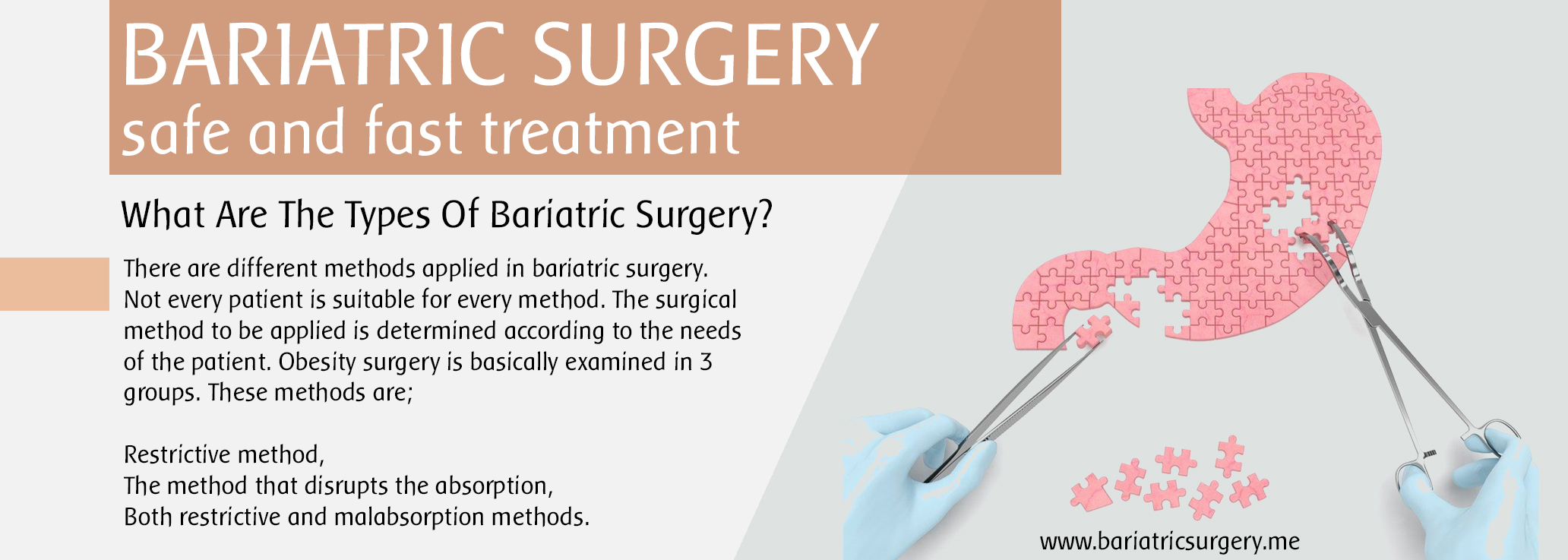How much should I walk after bariatric surgery?
Following bariatric surgery, it is critical to incorporate physical activity into your daily routine to help with weight loss and …

Excess weight due to irregular diet and sedentary lifestyle causes various diseases in people over time. Obesity can cause health problems such as diabetes, cardiovascular diseases, psychological diseases, sexual problems and sleep apnea. Excess weight problem, in addition to health problems, also causes psychological problems in people depending on the physical appearance. In some patients, because of these psychological problems, emotional eating disorder is experienced, new ones are added to the increased weight. If diseases such as high blood pressure, diabetes, heart failure, respiratory failure, fatty liver and cancer caused by obesity are not treated, life expectancy is shortened by 20% and the quality of life of people is seriously reduced.
Obesity causes health problems worldwide and the number of overweight people is increasing day by day. Worldwide, there are 1.5 billion patients with obesity in our country, who require treatment. In patients presenting with obesity, first of all, it should be investigated whether there is a hormonal problem that may cause excess weight. After the problem is found, the person is tried to lose weight with his own effort by doing sports and diet. Bariatric surgery is applied to patients who cannot lose weight despite all efforts and whose health problems progress. Whether people are obese or not is determined by making the necessary calculations. People with a body mass index of 30 and above are considered obese.
Body mass index = Weight (kg)/(height x height)
According to the result, which class you are in is determined according to your Body Mass Index score.
The main purpose of bariatric surgery is to create a feeling of satiety with the changes made and to restrict absorption by reducing food intake. In this way, the person consumes less food and the food is quickly removed from the body without taking in excess calories.
Bariatric surgery; It is a surgical procedure applied to change the structure of the stomach and small intestines and to restrict food intake in order to treat overweight and weight-related health problems.
The main purpose of bariatric surgery is to prevent diseases caused by excess weight from causing health problems and reducing the quality of life. Excess weight causes respiratory failure, sleep apnea, hormonal disorders, internal diseases, high blood pressure and diabetes, fatty liver, stomach problems and cancer. It is a scientifically proven fact that excess weight causes cancer is among the most difficult processes. A healthy weight loss reduces the risk of cancer. Contrary to what is known, obesity surgeries are applied for the health of people rather than aesthetic concerns. With a healthy weight loss, many diseases regress and some are completely eliminated. The change experienced physically, depending on the weight lost, also makes people feel better spiritually and be self-confident. Especially in patients who gain weight due to emotional eating disorder, thanks to the support of dietitians and psychologists after the operation, the weight lost becomes permanent and people are much happier both in terms of health and physicality throughout their life.
Obesity surgeries should not be seen as a miracle. The success of bariatric surgeries depends on the correct method and physician, as well as the patient’s compliance with all the rules by changing his eating pattern after the operation. After the operation, the patient should apply the things to be considered correctly, and place nutrition and exercise on the basis of his life. If the patient eats irregularly and does not do sports as before, no matter how successful the operation is, he starts to gain weight again and the diseases begin to occur again, that is, bariatric surgery results in failure.
Bariatric surgery is an operation that is applied to people who are overweight and have co-morbidities related to these weights, for therapeutic purposes rather than aesthetic concerns. Obesity surgeries are legally applied to people over the age of 18. Although the upper age limit is generally known as 65, obesity surgery can also be applied to patients over the age of 65 who are suitable for the operation in terms of health. The main criterion in obesity surgeries is that the body mass index is above 35-40 and there should not be a serious health problem that prevents the surgery. The diseases and criteria to be found for the application of bariatric surgery are;
There are different methods applied in bariatric surgery. Not every patient is suitable for every method. The surgical method to be applied is determined according to the needs of the patient. Obesity surgery is basically examined in 3 groups. These methods are;
Gastric sleeve and sleeve gastrectomy are examples of restrictive methods, while bypass surgeries are examples of malabsorption methods. Other methods applied in bariatric surgery are;
Laparoscopic Sleeve Gastrectomy
In bariatric surgery operations, the amount of food intake and absorption are reduced by intervening in the stomach and small intestines. In addition, changes are made to increase the feeling of satiety and reduce the release of the hunger hormone. The main types of operations used in bariatric surgery are;
After obesity surgery, you need to change your whole diet and life conditions. In order for the weight gained due to irregular nutrition to be lost after the operation and to be permanent, you need to completely change your diet. Before the operation, the patient should follow a diet to reduce the risks and facilitate the transition to a new diet.
In order to get rid of weight-related health problems and to experience permanent weight loss, you need to pay attention to your nutrition after the operation. Since the stomach volume will be reduced in the operation, liquid diets are applied for a certain period of time and the transition to solid foods is made gradually. After bariatric surgery, the patient is controlled for a long time by the surgeon and dietitian. If the patient has weight gain due to emotional eating disorder, psychologist support is also recommended when necessary.
After the operation, the patient pays attention to regular nutrition and if they practice sports activities after the doctor’s approval, they lose weight and the lost weight becomes permanent. Since there is a problem in stomach absorption, it is necessary to take additional vitamin and mineral supplements after the operation.
Despite your own efforts, obesity surgery is the healthiest treatment method for people who cannot lose weight despite exercising and dieting and whose body mass index is above 35-40. Bariatric surgery is a treatment method for overweight people and is applied as a last resort when you cannot lose weight with your own efforts.
Obesity surgery is performed when additional diseases such as hormone disorder, diabetes, high blood pressure, fatty liver, sleep apnea, respiratory failure due to excess weight and body mass index are above 40.
Bariatric surgery is a personalized process. The patient’s eating habits, age, excess weight, gender, existing diseases, amount of movement are personal conditions and are among the factors that determine the operation method and the amount of anesthesia to be applied. Considering these factors, obesity surgery is planned individually. The method to be applied to the patient is determined according to the analyzes made during the examination and the results of the gastroscopy examination. While making this decision, the doctor decides on the method by considering the patient’s condition and tells the patient all the necessary information about the operation. As in every surgical operation, there are risks and side effects in obesity surgeries. The patient is informed in detail about all the risks he may face. It would not be right to call any of the obesity surgeries the best method. Each method is the most accurate method if applied correctly to the right patient.
According to the results of scientific studies, it has been proven that obesity causes cancer. It is also observed that the risk of cancer decreases significantly by losing weight. Depending on obesity, breast cancer, uterine cancer, colon cancer and prostate cancer are among the most common types of cancer. Cancer is more common in women due to overweight. Finding a solution to the obesity problem also reduces the risk of cancer. Obesity is a treatable problem today and it is a much easier process than cancer treatment.

Following bariatric surgery, it is critical to incorporate physical activity into your daily routine to help with weight loss and …

Bariatric surgery, also known as weight loss surgery, is a medical procedure that helps individuals who are severely overweight or …

It’s not unusual for people to have more frequent bowel motions after having bariatric surgery. This may be attributable to …

If you’re dealing with obesity, you know how difficult it can be to lose weight. It’s not only about looking …

Have you had enough of dealing with your weight and the health issues it causes? Do you worry about the …

Have you given any thought to having bariatric surgery in order to assist you in losing weight? If this is …

In this article, we’ll go over how does bariatric surgery works and why it might be a good choice for …